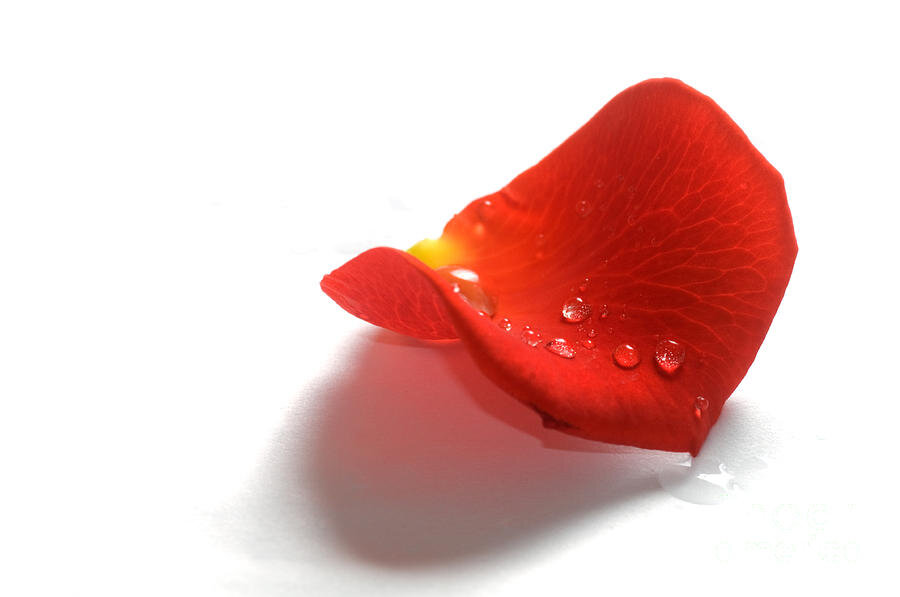Martin owns a goat. Martin owns a goat, and he keeps his goat in a great big pen out at the end of the property, where the sweet trees swell with figs, and in the hyacinths, the spiderwebs flex between petals. Yes, it can get quite cold over there, where the kids have abandoned their sand pails in the dirt for next summer. But don't worry. Martin makes sure his goat is kept in good company. In the evenings, after the kids have been thoroughly bathed, and Nancy is just about done scrubbing rhubarb off the cutting board, Martin can be seen arranging a lounge chair next to the pen at the end of the yard. He can sit there for hours, a whole pie in one hand and a fork in the other, him in his chair, the goat in its pen, out there where the crickets whine unfettered, and the moss grows blue, and once the horizon flushes —darkly!— and the sun is no longer visibly snagged to the sky, Martin will set down his pie and he will turn to the goat and he will ask him this:
"Did you enjoy your milk today?”
“Yes, I did enjoy my milk, thanks,” says the goat.
“That’s nice. Did you notice the rain today? It sprinkled a bit at noon.”
“Yes, I noticed the rain, and I enjoyed it, out here in my pen. It had a clear saccharin taste like the water in the springs in the mountains.”
From the house, a commotion can be heard, like the dropping of a plate or a pitcher. The goat blinks.
“Shucks,” Martin grips his fork. “Nancy again.”
“Is everything alright?”
“Oh, Nancy’s arthritis has been making her a fucking klutz lately. Dropping things left and right. Last night, you should have seen it, goat — rhubarb all over the floors, all over the walls! She dropped that thing immediately after she pulled it out of the oven. And all over my slippers! What a hoot!”
He scoops another swollen fork-full out of the dish.
“But it’s nothing to fret over, goat. Just something that happens with age, with humans. Perhaps you wouldn’t know, as a goat.”
“I see.”
“I’m headed to bed now, goat. It was nice chatting with you, even if you are a goat. See you tomorrow.”
He pulls himself out of the lounge chair, each bulge of him rippling under his white shirt. Syrup from the pie has thickened his beard, and with his heavy gait and the now-broadened silhouette of his chin, he seems infantile, fat, foundering back across the yard, stumbling at the coiled hose, pawing open his zipper to take a piss. The goat watches him until he has disappeared into the house, until the light in the bedroom window has dulled, and then the goat, too, curls up in a scantly-grassed corner of his pen and lilts into a simple goat’s sleep.
• • •
The pen that contains Martin’s goat is not unordinary: built of white wood, sturdy, ten feet by twenty. A bit of vegetation grows there, nothing too gaudy but nutritious enough: cat grass, vetiver, deadnettle, and of course bundles and bundles of sourgrass, which Martin’s goat can often be seen toothing on in spring.
Each tufted flower, we know, is rooted into the Earth, so that a bird’s beak may not suffice to pull it (how thoughtful of God! To have moored the pesky plants, and moored them deep, so as to swaddle the Earth politely!). Yet, as Martin pulls, the dirt goes pop! as all those little dendrites are unplugged. Martin is no bird’s beak. God made Martin strong. It is a predetermined fault between species: some can pull the flowers out of the Earth, and some cannot, either because they are smaller than the shrub they wish to pull, or perhaps because they are weak, or stupid. This is something Martin understands well.
“Why are you pulling out the sourgrass? I quite like sourgrass,” says Martin’s goat.
Martin pauses for a moment, sweat saturating his tank top. A bee settles on his brow and he smacks it.
“Well, goat,” says Martin gruffly, “Nancy’s been — nagging. Talkin’ ‘bout how the sourgrass makes the yard look unkept, rowdy. She hates anything yellow. I’ve been shrugging it for months, except her sister is visiting next Wednesday, and you know what’ll happen to me if the sister is over and the place isn’t pip and tidy!”
He pulls a wad from the ground and deposits it in a pile at his feet.
“Plus, goat, deer eat sourgrass. Would you like to share your pen with deer?”
Out here at the end of the property, the boughs lounge down to tickle the ferns as they offer up their thick fruit, and the locusts are humming, and the wren’s eggs in the cavities of wood are gently hatching, for it is spring!
A crash can be heard from the house, sharp, like a glass dropped.
“Shucks.”
“Arthritis again?” says the goat.
“Yes, goat.” He pulls his shirt off and wrings out the sweat. “I told her the new cups were under the sink. She said she was sick of glass, sick of ‘em breaking, so I bought her plastic cups — not the yellow ones, her request. That shit cost me $6.50. And you know what, goat?
He shakes his head, draping his shirt across a branch.
“I’ve never even seen her use them!”
A shriek can be heard.
Suddenly, out bursts Nancy from the back door — apron pinched at her hips, thin, the braid in her hair bambi-brown and flaccid, knuckles bloated with arthritis, knees pink— and she is yowling, yowling hard! Martin yanks his shirt back from the branch.
“Jesus Christ, what is it this time?”
On yowls Nancy. She hobbles down the yard, pulling madly at her own hair, her apron. Finally, she collapses into Martin’s poached bare belly.
“Nancy, I said, what’s going on?”
The nymphish woman peers up at them, Martin and his goat. Her eyes are milky with tears.
“Ants, Martin, ants!”
“What — what the fuck do you mean, ants!?”
“I think we have an infestation!”
She bears her arms and indeed, tiny black bodies scurry about them.
“I was reaching for the cereal on top of the fridge, but I missed and — the box spilled all over me! I’ve noticed that one box of cheerios has been up there a while, Martin, oh, if only you had thrown it out — I was wondering if it had expired, but I never would have imagined — ants, ah, so many ants!”
She dissolves into a fit again, sobbing and swatting at her arms. Martin’s face reddens.
“Nancy, you goon! They’re just fucking ants!”
And with that, the pair trots across the yard and into the house, Martin red and cursing, Nancy manic in the grip of his meaty arms.
• • •
Nancy’s sister comes, and then she goes — a prunish woman by any regard, all bangle cinched to wrist and teeny eyes, so for a week Martin’s dinners are all open-faced sandwiches: parched tuna on brittle ciabatta slice (“What a hoot!” Martin says to his goat).
Spring passes. The sourgrass grows back in, and no one will tug at their ditty yellow blooms for a while.
In summer, the figs fall from the tree. The kids fill their pails with them, naked toes gnawing into mulch, smelly. Long ago, Martin planted that tree, after he and Nancy’s honeymoon to Cuba in which he snuck back a pocketful of Belmandil seeds from a Moorish garden. Now its produce leaves the kids sticky always, so Nancy is scrubbing at their cheeks always. Consequently, it is within these summer months when Martin’s goat can observe Nancy most, for here she meanders out the kitchen, out the house, — “don’t go tracking mud into the house!” — chasing after them, the garden hose shaking in her delicate grip.
Nancy’s disease is worsening. The goat can infer this from the accelerated frequency of the bang!s he overhears, the almost routine sounds of cups breaking every time Nancy whips up a meal. One day in June, her condition becomes so potent in her hands that they swell to the size of ripe papayas; the goat watches from his pen as she hangs them out a window in a desperate attempt to cool them. For three nights, she stays there; her hands continue to grow until they are bigger than her body and she can’t fit them back inside the sill; palmetto bugs sleep in the grooves between her knuckles and she cries. On the third night, Martin must call in doctors from the nearest town with syringes full of medicine, which they plunge into her inflated flesh. Her scream can be heard for miles.
Martin’s goat likes to think there is a bathtub in the house (perhaps in a back room, somewhere cool), where Nancy can rest at the end of the day, the joints of her body slackening to become again her satiated hinges. But alas, the goat can only wonder. All he knows of Nancy are from Martin’s pendant anecdotes and glimpses of her from the window, a dish weighing down her knotted hands.
And every night, of course (in summer, too), Martin can be seen in his lounge chair at the end of the property, sucking on a fork, the goat in its pen beside him; among them, the pits of figs (a whole lot of them!) fringed with yesterday’s pulp. In that hymnal heat of summer, the goat is often inclined to sit in the gravelly parts of his pen so that the chilled bits can cradle his chin.
“Did you enjoy your milk, goat?”
“Yes, I did. Bites the heat. Are you enjoying your rhubarb?”
Martin cuts his pie with his fork, taking a long draw so that the sap beads over the edge of the pan.
Martin is enjoying his rhubarb. He always is.
“Good as ever!” He pops his forkful into the air as if to offer a toast, before eating it. Then, he grins. “And we’re lucky for that one, goat.”
“What do you mean?” says the goat.
“Well, goat,” Martin shakes his head. “Earlier, me and her got in a sort of — tizzle. Was half-expectin’ her to throw some mothballs into the pie, instead of this good rhubarb!”
“Tizzle?”
“So I’m coming home from work and there she is on the kitchen floor, balling her eyes out, and I say, ‘Nancy, what the hell is the matter with you?’ and she looks up at me, goat — you should have seen the scorn in her eyes! — and she says, ‘Martin, all you ever do is talk to the goat! You know that? It’s all you do. Maybe if I was a goat, you’d talk to me!’ Now, isn’t that a hoot?”
The goat blinks.
“Is that all she said?”
“Yes, yes, that’s all she had to say. Hysterical, isn’t it?” The pan has been thoroughly hallowed; Martin raises it to his face to lick the scum off the bottom. “I’m in the house and she’s nagging, over one thing or another. I leave the house, and then ‘all I ever do’ is talk to the goat. You’re damned if you do, damned if you don’t.”
He pauses.
“It’s dotty, goat, that arthritis of hers. I think it’s what’s giving her a temper. And perhaps what’s more dotty is that she still goes on slingin’ her pots and her pans, every night — no matter how large her knuckles get! She is dedicated to her cookbook, diligent, and at the end of it she always says, ‘Honey, here is your pie.’”
“Impressive.”
“Indeed! That’s the thing, goat.”
“What?”
“She insists on it! It’s not like I impose it upon her — I support a man or woman’s free will, just the same. You see, wives don’t have to make pie, goat. They just enjoy doing it.”
“Oh, I see.”
“And goats like to watch the clouds!” Martin laughs. About them, the boughs are wagging so low to the ground it seems as if the trees and all the nettles may be spineless.
“Well, I’m calling it quits for tonight, goat. It’s been a day. I’ll catch you tomorrow.” He picks up his dish and returns to the house.
The goat sits in his pen, and thinks; he thinks of Nancy, that little crimped woman doomed forever to be Martin’s wife, boiling his pies for him, scrubbing at his stove and his faucet, ironing his socks for him, steeping for him jasmine tea until the day she dies. The goat thinks, it is too late for her to ponder divorce: arthritis-wracked and wilted, she is old — who else would want her? Hobbling about? Wincing each time she is made to crack open a rambutan? No, that will never do. Nancy must be sleeping now, warmed by the same quilt Martin is warmed by when he sleeps.
The goat, too, thinks of his own life. He lives a pleasant life, as a goat. He has no responsibilities and is indebted to no one, save for his duty to stay within the confines of his pen, at the end of the property, and be a decent goat for Martin, which isn’t very hard. He can watch the daffodils wink in the shadow of a tree; he can watch the birds form wreaths with their bodies in the sky, among the atlas moths, and he will never be deemed lazy if he chooses to sit and watch for dizzying hours. The sun is thick in June; in winter, the vulgar grit of his fur retains his heat. Yes, the hostile thumb of fate has spared this soul, who was born into this life a goat. But what worth is in a life of just indulgence? Martin’s goat has run his course as Martin’s goat, he thinks.
Martin’s goat knows what he has to do.
That night, he waits. He waits until all the house is still, until the smoke plume from the chimney has tapered to a dull wisp. Then, he jumps over the fence — something he’s never done before. He makes his way across the property, past the fig tree, past the coiled hose. He nods open the backdoor — unlocked. The kitchen smells of sugar.
Upstairs, the rug is chalky with mildew, and it pads the moseying trot of his goat’s hooves. He disregards the bedroom door with the glow-in-the-dark shooting stars pasted to it, the crack in the bathroom mount which ants are dashing under and out of. Finally, at the end of a long hallway is the bedroom where Martin and Nancy sleep.
He enters. He holds his breath as to not arouse the tendrils of a string-of-pearls plant thatched to the ceiling. On the dresser beside Nancy are countless flasks of fragrance; a puckered jewelry box; a picture frame, paperless; ten or so crumpled up lottery tickets. All of her belongings collapsed into a blank clutter. Asleep, she reserves the tender calm of rabbits. And beside her dozes Martin. Martin’s goat, as subtle as can be, nods right up to the edge of the bed. Martin’s goat is staring. He stares into Nancy’s soul. He stares hard.
The next day, Martin’s goat awakes as Nancy, now, and Nancy as the goat in its pen, lollygagging among the Belmandil pits and termites, but Martin does not know. He rolls out of bed, flings on a robe and says “Hello, Honey,” to the goat, who is now Nancy, and the goat says, “Good morning, I hope you had nice dreams.”
• • •
It takes some getting used to. Martin’s goat has never known how to stand on two legs; have elbows; have his vertebrae stacked on top of one another; or the strange, marsupial warmth of having breasts. He spends his first week as Nancy in front of the bathroom mirror obsessively, running his thumb along his nose, braiding and unbraiding his hair ten times over.
He bends into Nancy’s arthritis. At first, it is excruciating: his bones hum with pain always, particularly at noon, when the sun is filtering down inflamed through the kitchen window — oh, the chafing weight of age! But by August, it has begun to feel second-nature to him: the tightness of his wrists, the whining of his hips as he bends over to retrieve a dust pan from under the cupboard. He has stopped flinching at the sight of stairs. Now, Martin’s goat cannot fathom a life fulfilled otherwise.
In the kitchen sometimes, he can peer out the window to observe Nancy, who is now the goat, of course, wallowing in her pen beside the fig tree and the sweet daffodils. At first, she is always lollying, brittle on her newfound goat’s legs so that Martin sometimes in the evenings inquires, “Goat, what has gotten into you lately? Why are you shaking like that?” and gives her a spank on the butt. She too, will adjust, Martin’s goat is sure of it. It is only a matter of time. For now, she doles her time by sniffing at a root, or perhaps staring out into the distance beyond her pen, beyond the yard, where the mountains cleave the muted tule fogs.
Seasons pass.
One day, as Martin is heading out to work, he pauses as he buttons his coat, before saying to the goat, who is now Nancy: “I’m gonna be honest: your pies are getting limp.”
“What do you mean?”
“I don’t know, tastes a little off in the mouth. Are you putting too much egg?”
“I’ll keep an eye on the egg.”
“Great.”
That afternoon, as the kids are out in the yard playing hide-and-go-seek, Martin’s goat can be seen bent over the old blemished pages of one of Nancy’s retired cookbooks, in the kitchen. If Martin’s goat is to fully become Nancy, of course, he cannot afford to fib on the pies! So he gets right to work. He pulls a cutting board out of the sink. He ties his apron. The fruit flies are purring, and the bulb above the stove is stolidly blinking, and there, he reads: Place your dry’s in a bowl: your salt, your thyme, cinnamon, cornstarch. Peel the rhubarb. Rinse the rhubarb. Warm the butter on a white dish. Add lemon, crack an egg. Pinch your dough. Don’t forget to poke it. Don’t forget to time it. Don’t cut yourself on your hand as you slice the fruit. Don’t burn the pan.















